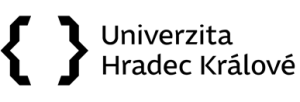The course starts with an analysis of the theoretical interpretations of the emergence and development of welfare state - the so called supply-side and demand-side theories. The subject examines the historical context of the emergence of welfare state from the perspective of major (political) ideologies of welfare. The contemporary relevant ideologies of welfare (social welfare) will be examined on the basis of the previously defined main characteristics of the ideology and the criteria of the ideology's significance. The teacher will go through traditional ideologies of welfare - liberalism, Marxism, and also late-modern ideologies of welfare - feminism, ideology of the Greens, and contemporary ideology of social democracy. All ideologies will be mentioned with regard to the interpretation of the emergence and current development of welfare state.
Great attention will also be paid to the current situation of welfare state, i.e. the process of its modernization, flexibilization of labour, and other current development tendencies (recalibration, recomodification,?). All this is on the basis of the previous more thorough studies of the mutual relation between the market, State, and civil sector within the so-called triangle of affluence.
Syllabus:
Theory of Welfare State
Ideology of Welfare
Ideology of the New Right Wing, the Centre Ways and Democratic Socialism
Ideology of Marxism, Feminism and Greenism
New Social Risks and Modernization of Welfare State - the main types of contemporary reforms
In case of need the lessons may be organised in distant form using ICT.
An oral presentation of a seminar paper in pairs - presented in the seminar (only full-time study). The oral presentation ends with giving topics for a discussion, and the discussion itself - moderated by the presenters. The test is in a oral form (full-time study). At the oral exam, the ability to actively reflect the context and to interpret phenomena from the perspectives of different ideologies or theoretical interpretations is assessed. In the case of written form of examination (combined study), the test consists of closed questions where the emphasis is put on the understanding of terminology and situating events into historical context.
Compulsory literature:
FLORA, P.; HEIDENHEIMER, A. J. The Historical Core and Changing Boundaries of the Welfare State. In: Flora, P.; Heidenheimer, A. J. (eds.) The Development of Welfare States in Europe and America. New Brunswick: Transaction Publishers, 1990, (kap. 1, s. 17 - 36).
KELLER, J. Soumrak sociálního státu. Praha: Sociologické nakladatelství, 2005, (kap. 6, s. 75- 90).
KELLER, J. Teorie modernizace. Praha: Sociologické nakladatelství, 2007, (kap. 1, s. 18 - 58; kap. 2, s. 59 - 93; kap. 3, s. 94 - 120).
MUSIL, L. (ed.). Vývoj sociálního státu v Evropě. Brno: Doplněk, 1996, (kap. 1, s. 9 - 30).
VEČEŘA, M. Sociální stát. Východiska a přístupy. Praha: SLON, 1993, (kap. 3, s. 32 - 54).
- Teacher: Martin Smutek
